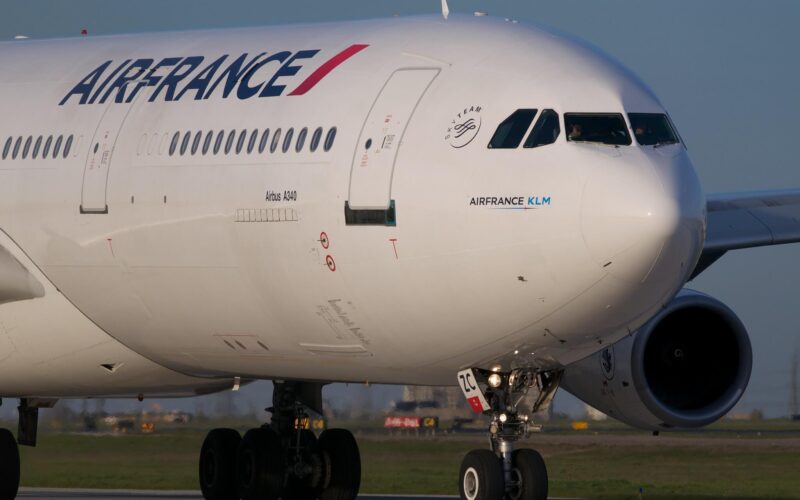The European Commission approved the aid proposed by the French government to Air France. The €7 billion will be used by the carrier to alleviate the consequences of the coronavirus crisis.
“This €7 billion French guarantee and shareholder loan will provide Air France with the liquidity that it urgently needs to withstand the impact of the coronavirus outbreak, ” the commissioner of the European Competition Authority, Margrethe Vestager, explained in a press release published on May 4, 2020.
The French government offered financial support to its national carrier in the form of two loans, one of €4 billion from six banks, guaranteed by the state, and one direct shareholder loan of €3 billion.
France demonstrated to the European Commission that all other potential means to obtain liquidity were explored and exhausted and without additional help it would be at risk of bankruptcy. “With a fleet of over 300 planes, Air France is a very important company for the French economy, in terms of employment and connectivity for many French regions including those overseas,” explains the Commission. “Since the start of the coronavirus outbreak, Air France has also played an essential role in the repatriation of citizens and for the transport of medical equipment.”
In March 2020, the European legislation on state aid was loosened in a “Temporary Framework” to allow governments to support businesses in need. The Commission’s assessment concluded that the State guarantee in favor of Air France is in line with the conditions of the Temporary Framework, which will be in place until the end of the year.
France and the Netherlands each own 14% of the Franco-Dutch airline group Air France-KLM. The Dutch government plans to help KLM by providing between €2 and €4 billion in the form of loans and guarantees.
As for Air France, it will have to fulfill several conditions to obtain the aid, including but not limited to a drastic reduction of its domestic network when passengers have an alternative to travel by train, the acceleration of its fleet renewal for more efficient (and whenever possible Airbus) planes, and a 50% reduction in its CO2 emissions per passenger and per kilometer between 2005 and 2030.

